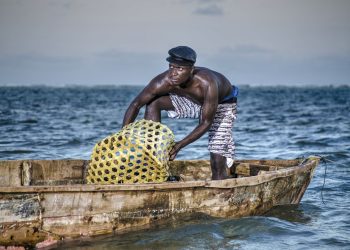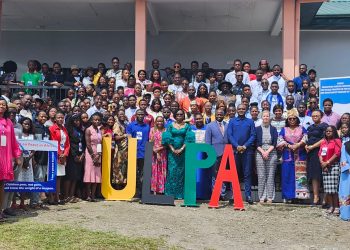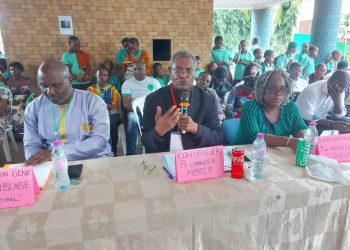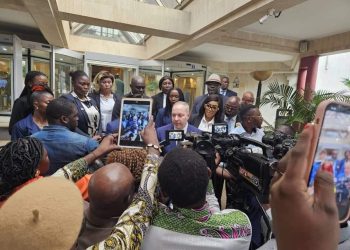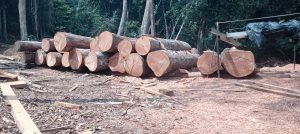
A recent investigation led by Gabonese authorities in collaboration with the NGO Conservation Justice has unveiled the involvement of a high-ranking member of the special delegation in charge of the Departmental Council of Ogooué et Lacs in illegal logging activities near Lake Oguemoué.
The joint mission, conducted between June and July 2024 by the Forestry Administration, the Judicial Police of Lambaréné, and Conservation Justice, exposed large-scale illegal logging operations in the Mpoundou and Bingovion areas. Sieur N.A, a member of the Special Delegation responsible for the Departmental Council, has been directly implicated, causing a significant reaction among local communities.
The investigation revealed that Sieur N.A engaged in unauthorized wood exploitation, cutting, and removal of timber, while using family members to circumvent legal regulations. The scale of these violations is underscored by the discovery of more than 268 cubic meters of sawn wood on the monitored sites, indicating an industrial-scale logging operation far exceeding legal limits.
Although previous investigative attempts had not yielded results, the mobilization of local communities and the Association of Communities of Lake Oguemoué (ACLO) has successfully brought the matter to the attention of the Lambaréné judiciary. Local stakeholders are hopeful that an exemplary decision will be made to reinforce the rule of law and good governance of natural resources in Gabon.
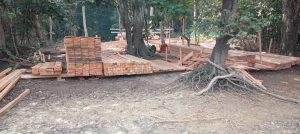
Patrick Bengone, President of ACLO, emphasized the importance of responsible resource exploitation for the benefit of communities and future generations. Luc Mathot, Executive Director of Conservation Justice, praised the organization and commitment of communities in protecting their environment, while also stressing the need to adhere to legal requirements for sustainable development in the forestry sector.
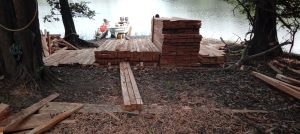
This case highlights the ongoing challenges in the management of natural resources in Gabon and the importance of increased oversight to prevent such abuses, ensuring that economic development does not come at the expense of local communities’ rights and the environment.
Fanta Mabo




